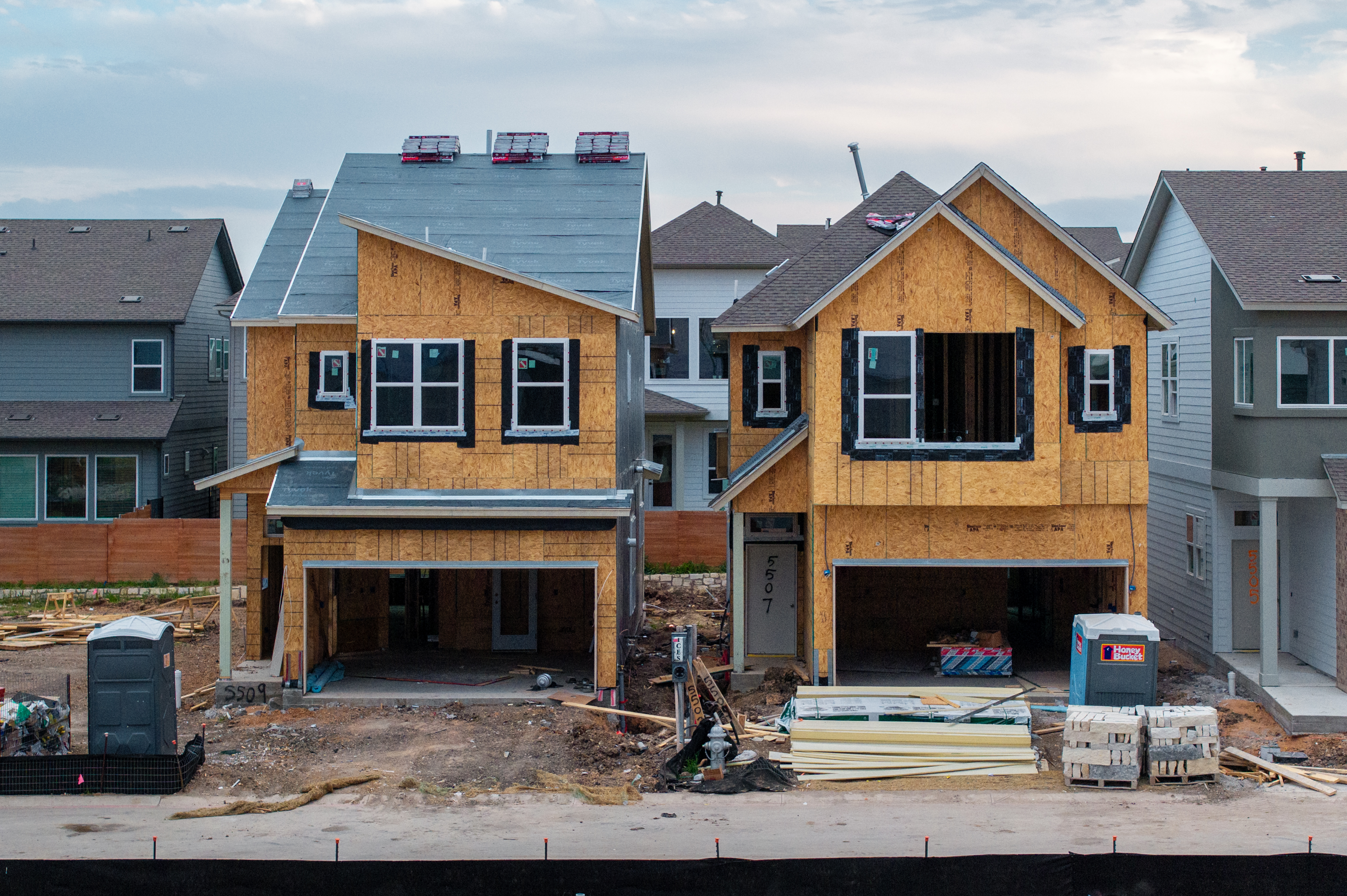🎙️ Voice is AI-generated. Inconsistencies may occur.
A recession this year could lead to a much-needed drop in home prices across the country, experts told Newsweek, but only because many aspiring buyers would be pushed to the sidelines by rising inflation and widespread uncertainty about their future.
Why It Matters
The ongoing housing affordability crisis in the U.S., largely a result of a chronic lack of supply, skyrocketing home prices and historically high mortgage rates, was one of Americans' top concerns ahead of the 2024 presidential election.
While Donald Trump ran with the promise of lowering housing costs, some economists argue that recent policies—especially new tariffs—could strain the U.S. economy and increase housing costs.

What To Know
The chances of the U.S. economy entering a recession by the end of the year have increased since Trump introduced sweeping tariffs on April 2, what he dubbed "Liberation Day."
The president imposed a 10 percent baseline tariff on imported goods, with higher rates for some countries, including 20 percent on goods from the European Union and 35 percent on Chinese imports.
In the days following the announcement, major global stock indices fell, prompting warnings from several economists warning of incoming pain for American consumers expected to be hit by higher prices across the board.
Trump maintains that his tariffs will lead to a U.S. economic "boom", analysts appear skeptical—if not pessimistic. On Monday, Goldman Sachs raised the odds of a recession to 45 percent from 35 percent—the second time they revised their forecast in a week.
Last week, J.P. Morgan raised its recession probability to 60 percent, up from 40 percent. Mark Zandi, chief economist at Moody's Analytics, put the odds at 60 percent on Sunday, up from 40 percent last week. At the beginning of the year, Moody's put the chances of a recession this year at 15 percent.
Would A Recession Bring Down Mortgage Rates?
Mortgage rates fell to their lowest level in six months following Trump's announcement, giving home buyers more purchasing power. As of April 3, the 30-year fixed-rate mortgage was 6.64 percent, down 0.01 from a week earlier and 0.18 from a year earlier, according to the Federal Home Loan Mortgage Corporation, better known as Freddie Mac.
Should the country slide into a recession this year, mortgage rates could continue to fall—as they typically do during an economic downturn.
"Mortgage rates typically fall during a recession as investors lean on bonds for reliable returns versus bigger, riskier investments," Realtor.com Senior Economic Research Analyst Hannah Jones told Newsweek. "More demand for bonds lowers their return, and mortgage rates mirror the 10-year treasury yield, so mortgage interest rates would move lower in tandem with longer-term bond yields.
"Additionally, the Fed [Federal Reserve] has historically dropped interest rates during recessions in pursuit of low inflation and full employment. Though the drop in Fed rates most directly impacts short-term yields, the impact moves throughout the bond market and can lower longer-term yields as well."
While earlier this year mortgage rates were expected to remain between 6 percent and 7 percent throughout 2025 and 2026, Lawrence Yun, chief economist at the National Association of Realtors (NAR), expects mortgage rates to fall more significantly should the country enter a recession.
A weakening of the U.S. economy would slow inflation—even accounting for the impact of tariffs—and "the shift of money out of stocks into bonds" would help "lower long-term interest rates," he told Newsweek.
What About Home Prices?
Crucially, Jones said that a recession could lead to softer home prices, but that would be the result of a significant drop in buyer demand.
"Higher unemployment would reduce the number of households that can afford a home, further weakening buyer demand," she said. "As buyer demand falls, sellers are likely to lower prices to attract remaining home shoppers in the market."
Danielle Hale, chief economist at Realtor.com, previously told Newsweek: "If the U.S. economy were to tip into a recession now, home sales are barely above long-term lows and may not have much further to fall. But economic stress among homeowners could prompt faster inventory growth that could lead to softening prices, a phenomenon we have not seen in a long time."
Yun thinks that "a lingering housing shortage and historically low delinquencies on mortgages" will keep home prices where they are even if the country enters a recession.
"If some buy real estate as a stable investment over stocks and bonds, then there could be added pressure for home prices to rise above normal," he added.
What Would Be The Impact On Homebuilding?
The construction sector has been bracing for Trump's tariffs, fearing higher costs that would discourage the building of new homes. While construction materials are likely to become more expensive, builders will likely be less motivated to build new homes in the first place because of depressed demand.
"A recession typically results in less homebuilding as buyer demand weakens. Higher unemployment and economic uncertainty reduces the demand for new homes as households tighten their belts and shy away from big financial decisions," Jones said. "The builder's response to lower demand for homes is to pull back on housing starts, which could exacerbate the existing supply shortage in the long term."
Once again, Yun sees the U.S. housing market as resilient. While there may be some initial cutbacks because of tariffs and uncertainty, he said, homebuilding "will eventually catch up due to rising housing demand from low mortgage rates."
Chilling Effect On The Housing Market
According to Jones, a recession would further cool the housing market.
"Reduced buyer demand and slowing home sales would put downward pressure on home prices," she said. "Higher unemployment and economic uncertainty make it more challenging for households to commit to taking on a mortgage, even if rates fall.
"Furthermore, banks tend to tighten lending requirements during a recession, making it harder to secure a loan. Renters may stay put for longer, weathering the storm until the path forward feels more secure."
Yun, on the other hand, confidently expects housing to be the one sector that will defy the broader recession.
About the writer
Giulia Carbonaro is a Newsweek reporter based in London, U.K. Her focus is on the U.S. economy, housing market, property ... Read more




